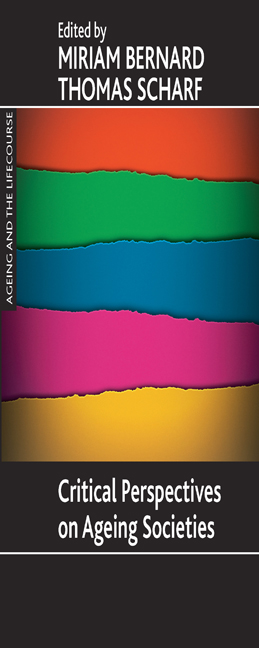seven - Revisiting The Last Refuge: present-day methodological challenges
Published online by Cambridge University Press: 14 January 2022
Summary
Introduction
When Peter Townsend “had to leave his university rooms on his retirement” (Thompson, 1998, p 173), data from his lifetime's work were deposited in the National Social Policy and Social Change Archive at the University of Essex. As Paul Thompson has commented, this is “very likely the most in-depth documentation that will ever be collected of the conditions and experience of old age and poverty in Britain” (Corti and Thompson, 2004, p 338). Our research is reusing the archived data from The Last Refuge that was first published in 1962 (Townsend, 1962), and this chapter focuses on some of the methodological challenges that revisiting a study, which was carried out in the late 1950s, involves. Before discussing these challenges, however, we briefly introduce The Last Refuge and why we are revisiting it.
The Last Refuge reported a study of residential care provided under the 1948 National Assistance Act in England and Wales. More than 40 years later, it continues to leave its mark, both positive and negative, on the provision of care for older people. Townsend's fundamental research question was: “Are long-stay institutions for old people necessary in our society and, if so, what form should they take?” (1962, p 3). With its focus on institutions, The Last Refuge complemented his earlier community-based study, The Family Life of Old People (Townsend, 1957), and it had a major impact on how he subsequently theorised the position of older people in Britain (Townsend, 1981a; see also Chapter Three).
The research for The Last Refuge was conducted in 1958-59. Townsend carried out a national survey of residential care provision in all the 146 local authorities in England and Wales. He was surprised to find that, despite the promises of the welfare state, a substantial proportion of older people were still being accommodated in homes that, between 1930 and 1948, had been known as Public Assistance Institutions (PAIs) (Townsend and Thompson, 2004; see also Chapter Four). The fieldwork included visits to a stratified random sample of 173 local authority (publicly owned), voluntary and private residential care homes. Although a majority of the homes visited were judged to be of poor quality, the research uncovered gross inequalities in provision for people with the same needs.
- Type
- Chapter
- Information
- Critical Perspectives on Ageing Societies , pp. 89 - 104Publisher: Bristol University PressPrint publication year: 2007

